072 #hackdays
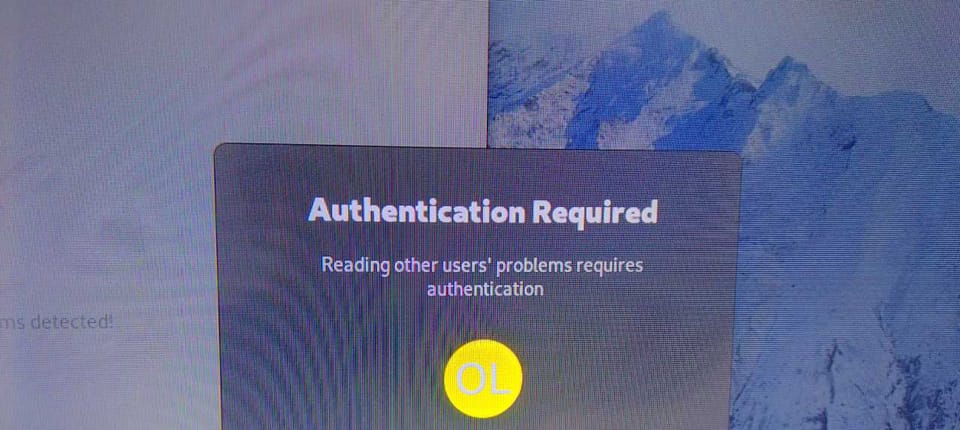
Swept up in the pandemic like the rest of the world, the open tech community made sure that hackathons continued to be a progressive meeting point for tinkerers, designers, concerned citizens, influencers and amateurs. Even if we cannot gauge the full impact, let us try to take some stock of these happenings.
TL;DR: 2020 was a hack of a year. Did we raise spirits? Did we support fair causes? Were we thrilled and entertained? Let us crunch the numbers to see what stories they hold.
In my case, the numbers look like this:
| Start | Days | Weekdays | Title | URL | Users | Projects | Challenges |
|---|---|---|---|---|---|---|---|
| 21.02.20 | 2 | 1 | Multilingual Media | https://db.schoolofdata.ch/event/4 | 32 | 5 | 8 |
| 18.03.20 | 6 | 4 | Monitoring COVID-19 effects | https://db.schoolofdata.ch/event/7 | 34 | 8 | 5 |
| 03.04.20 | 2 | 1 | VersusVirus April | https://versusvirus.devpost.com/submissions | 1133 | 263 | 7 |
| 17.04.20 | 3 | 1 | TogetherVsVirus | https://togethervsvirus.devpost.com/submissions | 145 | 23 | 40 |
| 28.05.20 | 3 | 2 | VersusVirus May | https://app.versusvirus.ch/submissions/ | ~90 | 19 | 7 |
| 05.06.20 | 2 | 1 | GLAMhack 2020 | https://hack.glam.opendata.ch/event/1 | 34 | 15 | 20 |
| 28.08.20 | 2 | 1 | Energy Hackdays 2020 | https://hack.opendata.ch/event/31#top | 52 | 15 | 21 |
| 04.09.20 | 2 | 1 | Open Farming Hackdays | https://hack.opendata.ch/event/34 | 29 | 11 | 17 |
| 23.10.20 | 6 | 6 | Make Zurich 2020 | https://now.makezurich.ch/event/4 | 39 | 20 | 7 |
| 23.10.20 | 6 | 5 | DayOne Health Hack | https://2020.healthhack.solutions | 102 | 20 | 10 |
| 13.11.20 | 2 | 1 | Smart City Lab – Lenzburg | https://hack.opendata.ch/event/32 | 25 | 8 | 12 |
| 27.11.20 | 2 | 1 | Shape My City | https://hack.opendata.ch/event/35 | 55 | 14 | 12 |
| 11.12.20 | 3 | 1 | Hack4SocialGood | https://bd.hack4socialgood.ch/event/1#top | 34 | 5 | 8 |
If you have numbers like these for other events, let's compile them! And please note that those are not absolute participation counts, but in most cases just the number of users registered in the project submission platform.
Do you believe
This post is a look in the rear-view mirror, a chance to express gratitude to all these people helping each other get through in one piece, trying to do their bit for the greater good while maintaining a vibrant and supportive digital society. Or just trying to stay connected, do something different, and work on what they deem to be sensible problems.
As I write this, briefly before new pandemic measures are imposed in Switzerland, I ponder the significance of the book Invisible Women, a meaningful new year's present from the Opendata.ch office. In it, the outspoken activist and author Caroline Criado Perez writes:
It's not entirely clear why the tech industry is so afraid of sex-disaggregated employment data, but its love affair with the myth of meritocracy might have something to do with it: if all you need to get the 'best people' is to believe in meritocracy, what use is data to you?
Here and in interviews, Perez charges that governments fail to take into account unpaid care work. I see why they might do that, and in Switzerland this is a topic of statistical interest and active debate: see BFS - Unpaid Work (where we would welcome an update of the 2016 numbers), or Swissinfo article on the women's strike last year (see further analysis by Christa Binswanger).
Hackathons may be fitting venues to inspect our relationship to the merit of unpaid knowledge work, so I am hoping we can do better than just "love affairs" - and make good use of data. An easy starting point, for instance, is to look at the calendar and ask 'how many weekends, weekdays are being dedicated to all these events? Where? By whom?' The opinion of the community on this question is something that the Opendata.ch team would like to know:
For our #Hackdays Community: We're thinking about trying a new format and would love to hear your opinion: https://t.co/AHHnakfxTz. Max 2 minutes, #thankyou! :) pic.twitter.com/lfW80gMHkk
— Opendata.ch (@OpendataCH) January 26, 2021
And it's important to think about whether people are spending "work" or "leisure" time, taking themselves away from the (virtual) office or (very real) family, before get to the more fun ones. You know, like running a tf-IDF vectorizer on progression-correlated messaging logs to extract cumulative attention gradients of our brainstorming sprints 😉
I am working on a blog post about the hackathons of 2020 - still lacking more data story; any ideas of #s worth crunching? E.g.
— Oleg Lavrovsky (@loleg) January 16, 2021
- # of participants & projects
- # typically male & female names
- # of sustained initiatives
- % sentiment analysis ..
2020 started off quietly
I remember the January meetings with the Open Knowledge network, exchanges with bright folks like Sharada Mohanty from AIcrowd, one of the best designed online competitive platforms - and others from the EPFL and wider ML community at the Applied Machine Learning Days. The days were spent wheeling and dealing around the country, as far out as Finland and India, blissfully oblivious of the calamities ahead. I still had time for side hacks like the A.I.-art project documented here:
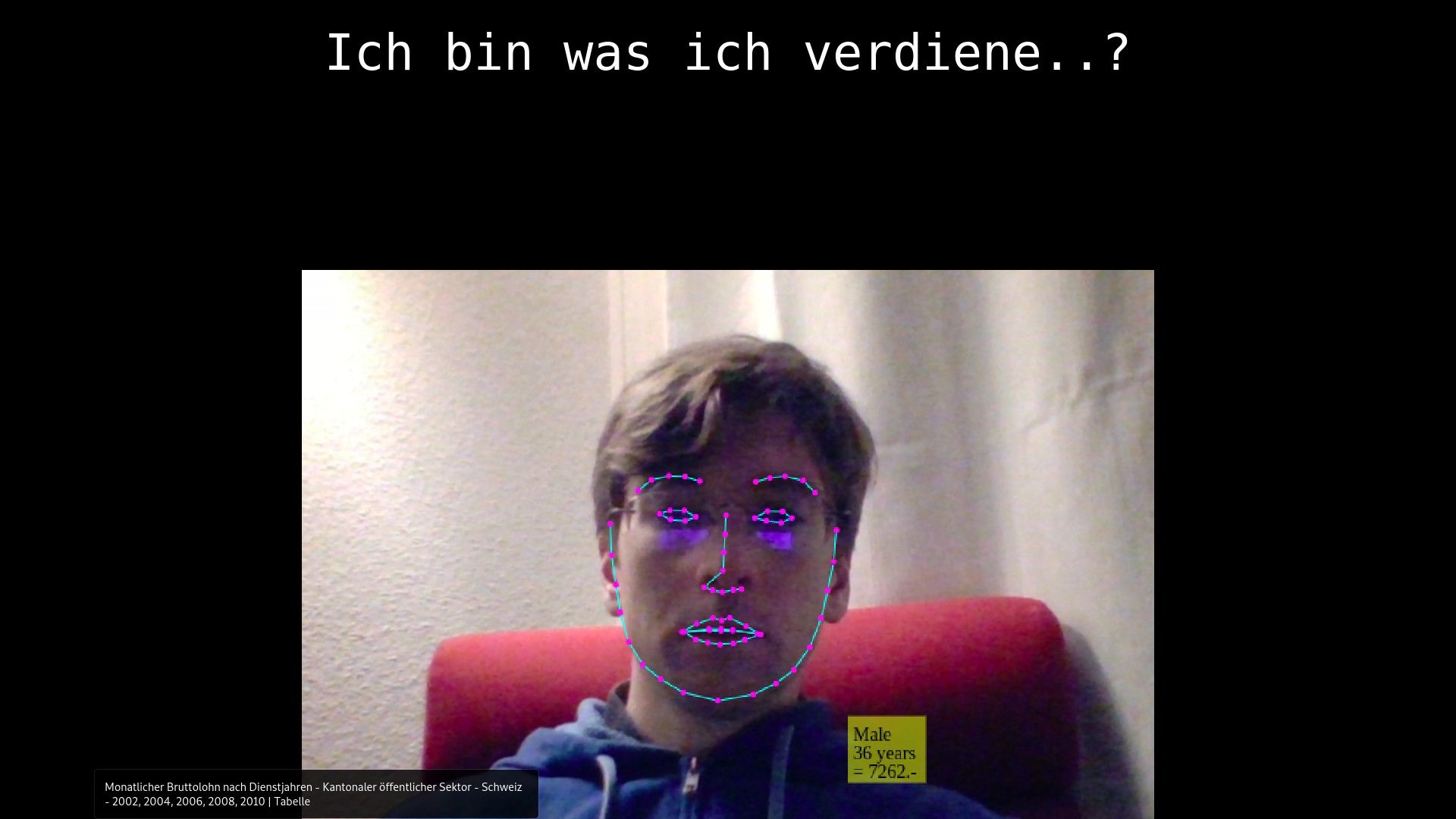
My preoccupation with urban topics was coalescing on the foundation of project SmartUse - today, the startup team Cividi. We managed to go remote and had a busy year earning open data, which was definitely highlighted in seeing the team and our message of improving spatial awareness through data literacy come out strong in several hackathons, recruiting bright people and sparking amazing exchanges. My goal with Cividi has been from the beginning to make open data and hackathons my day job, if that makes sense.
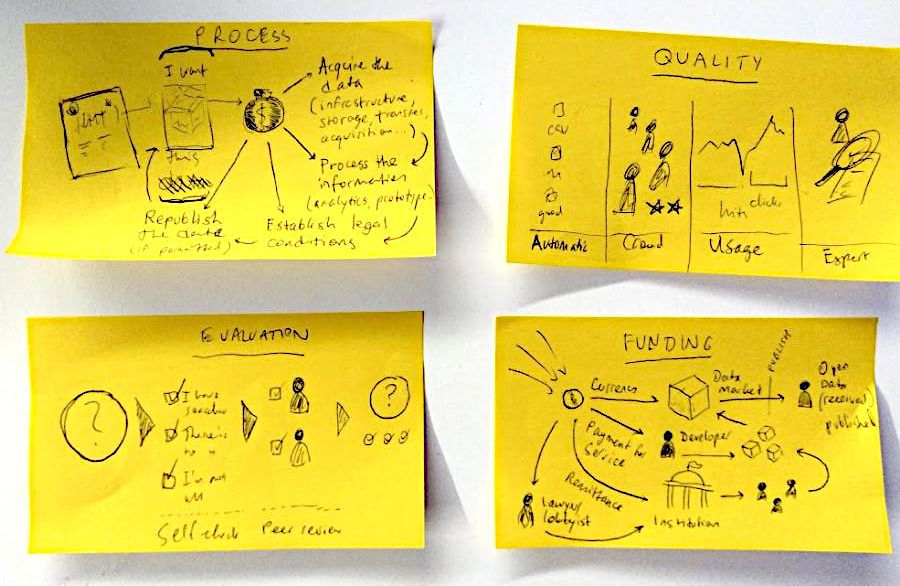
The hackathon year got on a roll for me in February, helping a bunch of journalists from the Swiss Broadcasting Corporation run an event in town with multilingual datasets as basis, and participants joining from near and far. The impacts of this extremely well produced event at a unique location are vividly felt 11 months on today.

We had a few cancellations from Asia-based reporters, as signs of trouble from Wuhan were quickly apparent. Things went haywire by the beginning of March, when we at last minute put our first hackday online. We didn't expect to set the pattern for all the others to come, but got two crucial days of extra practice in livestreaming, keeping a perspective on the pandemic, and expectation management.
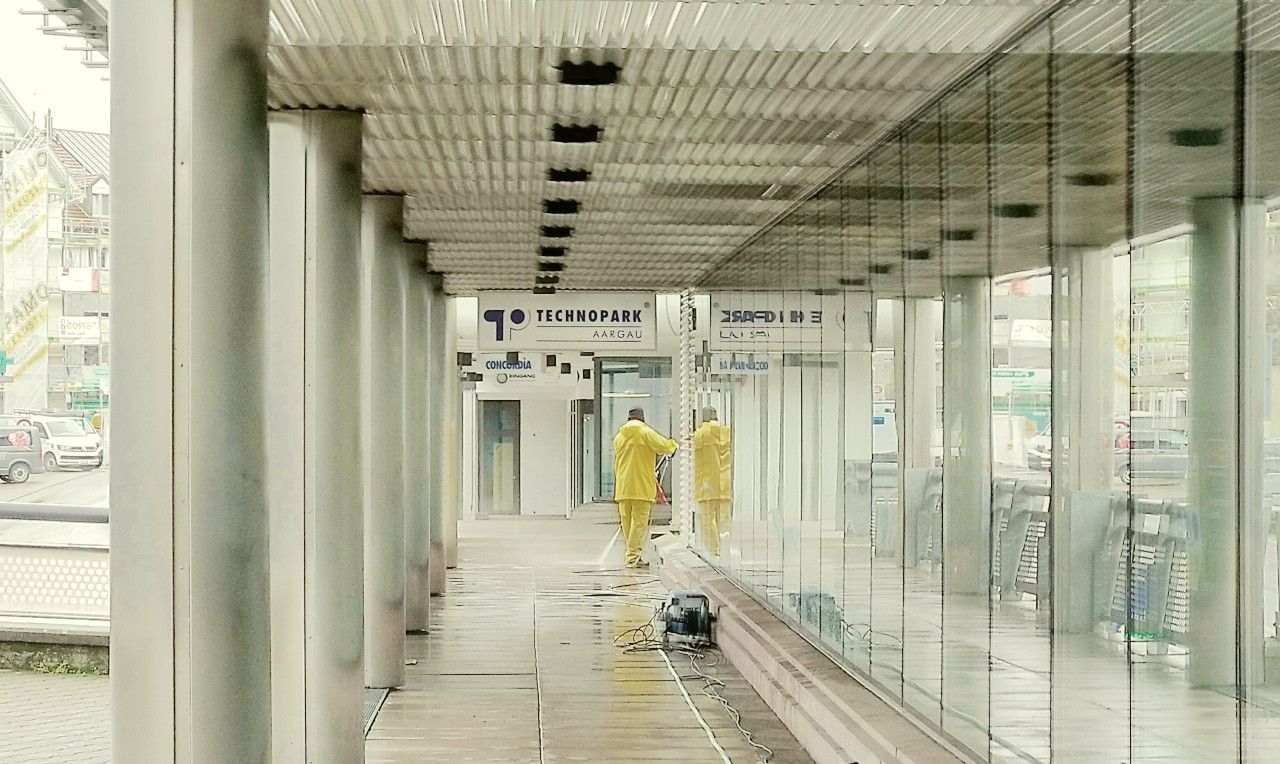
Soon after, we went into lockdown with all our data-ful fists in the air. Like many others obsessing over the daily case counts, I read into the relatively unfamilar topic of epidemiology to better understand the scope of the crisis, and try to act in support of public health measures. Then usually went out to check if any neighbours or coworkers needed a delivery, or just to hear a friendly voice.

With a closely-knit group of activists, we laid some essential groundwork to support timely and open data publication, created channels to make data activists available to health professionals and administrations in any way needed to bolster digital resilience.
Massive thanks to Statistik Kt. Zürich and everyone involved for engaging in these unprecedented efforts of organized data collection, for your contributions to open data projects and platforms. Matthias Mazenauer shares excellent perspective in this webinar, and there are more details posted here:
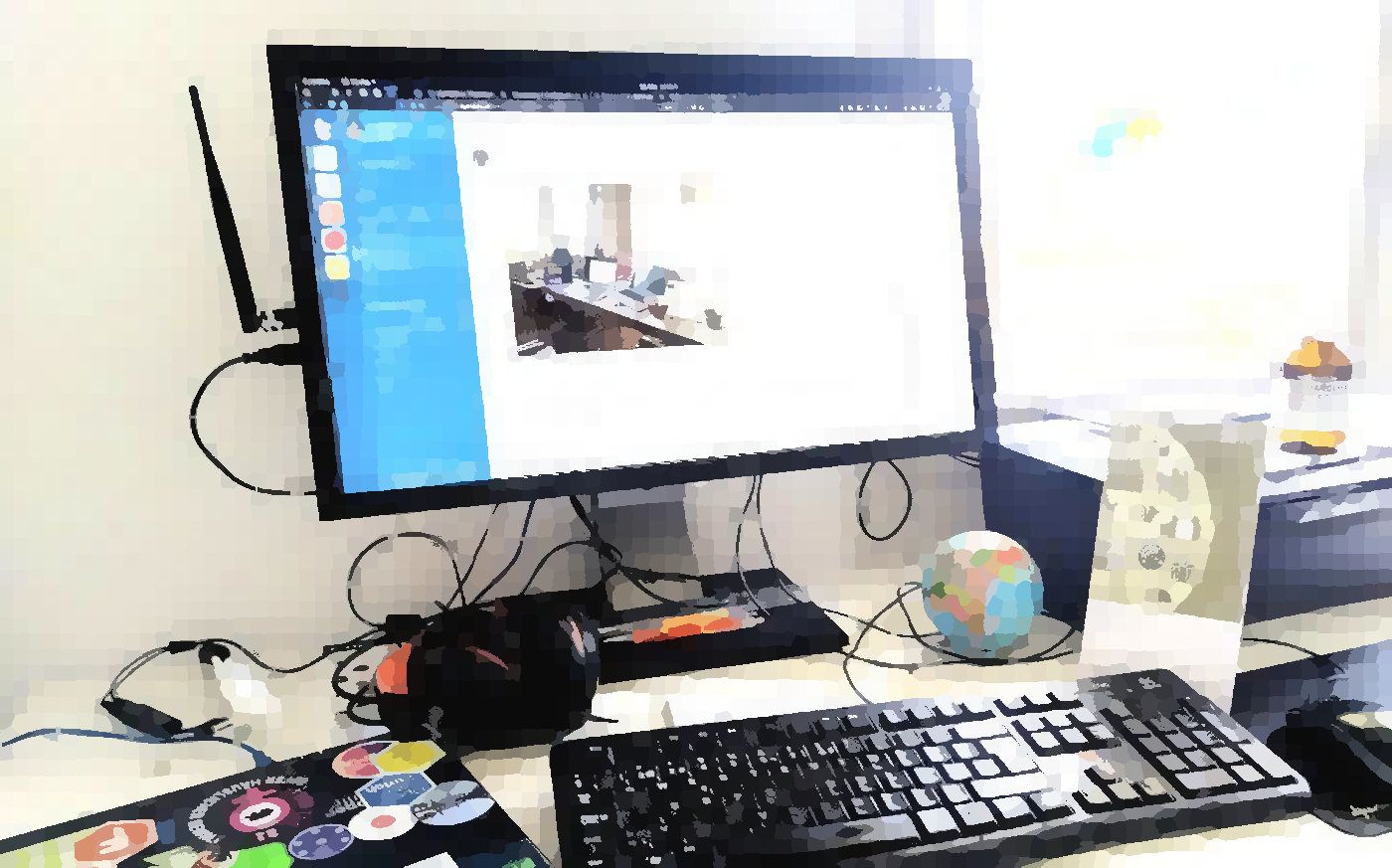
In hopes of healthier times
The pandemic was relentless, the schedules and milestones kept getting pushed back. While a couple of socially-distanced hackathons were run on location, almost all our organizing and team-building went virtual in 2020. Like in many other tech sectors, the work seemed to have gained a new urgency, and we saw massive boosts in the quality and reach of hackathons as "happenings" and social platforms.
This perhaps was best exemplified by the massively multiplayer online gathering #VersusVirus, where thousands signed up in an act of digital solidarity. Our job was to make their locked-down contributions count.

We set up a Slack which would soon grow to 5000 people, designed and rapidly implemented a teambuilding app, lead-developed by Panter and people who run hackathons at CERN; and since open sourced:
This was followed by activities to try to sustain the projects beyond the hack. I was mostly involved with the Incubation Program for hackathon teams, and setting up the Canadian edition called #TogetherVsVirus, run by a fully remote team of locals and expats.

We learned a lot about No Code and Low-Code, wondered as people whipped up extremely compelling ideas hacked together in some cases with ML and blockchain glue, at other times being convincing enough just rendered in a slideshow. Some of them went on to raise funds and attention. I trust that many led to new connections and even partnerships. The consequences have gotten harder to follow.
May was quiet
I got ill at one point, thankfully recovered fully. Taking care of sick family, friends and neighbours took up the time. As did sharing in grief over the physical and political desolation around the world, contributing what we could, forgiving but not forgetting as personas and institutions were stripped of their veneer.
COVID-19 was a massive catalyst for open data in the public sphere, as this blog from Open Knowledge and our experience here would attest:
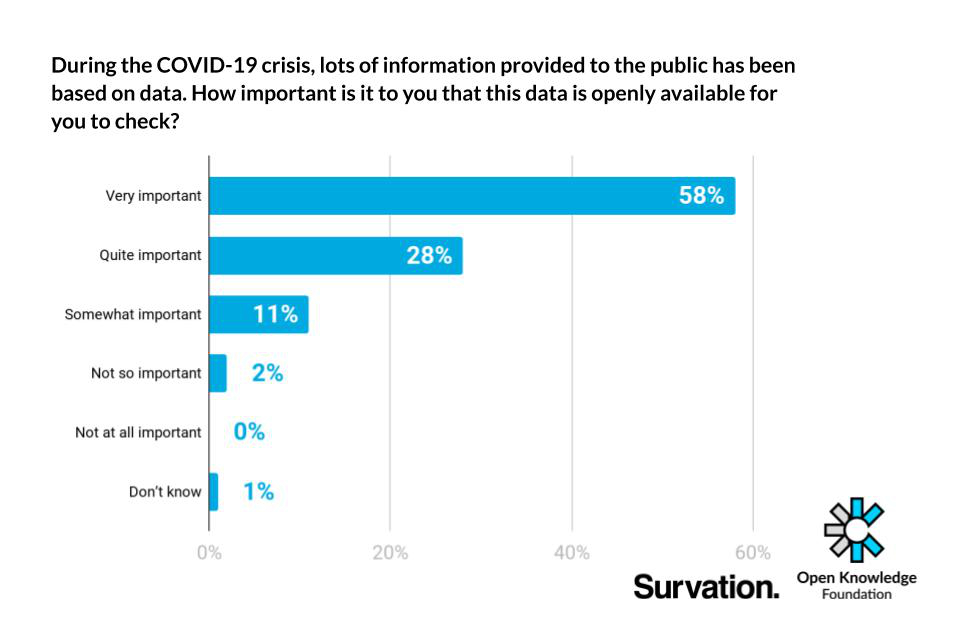
At the same time, rapid developments in areas such as contact tracing were raising flags in our community ...

And provoking, in some cases, well organized responses.
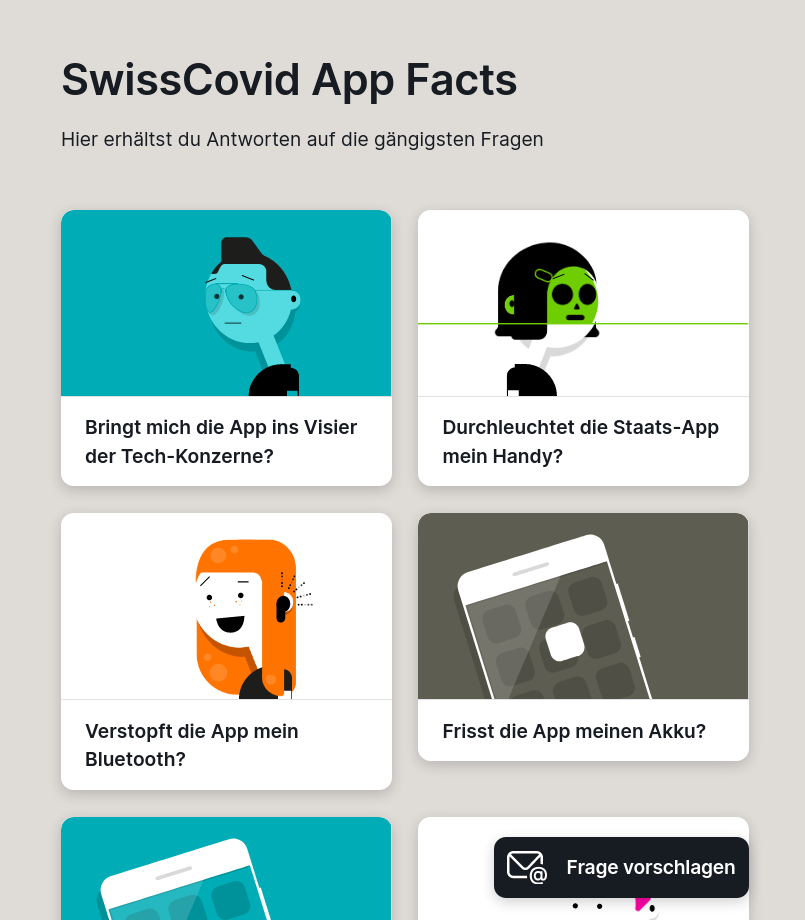
There were many chances to contribute to interesting debates, such as on the topic of health data governance (the foraus reports are out now). These topics were highlighted at the Opendata.ch virtual conference:

Raising our game
Later in June, we ran the 2020 Edition of the Swiss Open Cultural Data Hackathon (#GLAMhack) online and on dribdat, our hacking scorekeeper app. Despite demanding freelance and startup work, events like this led to investing more time in code through the summer.
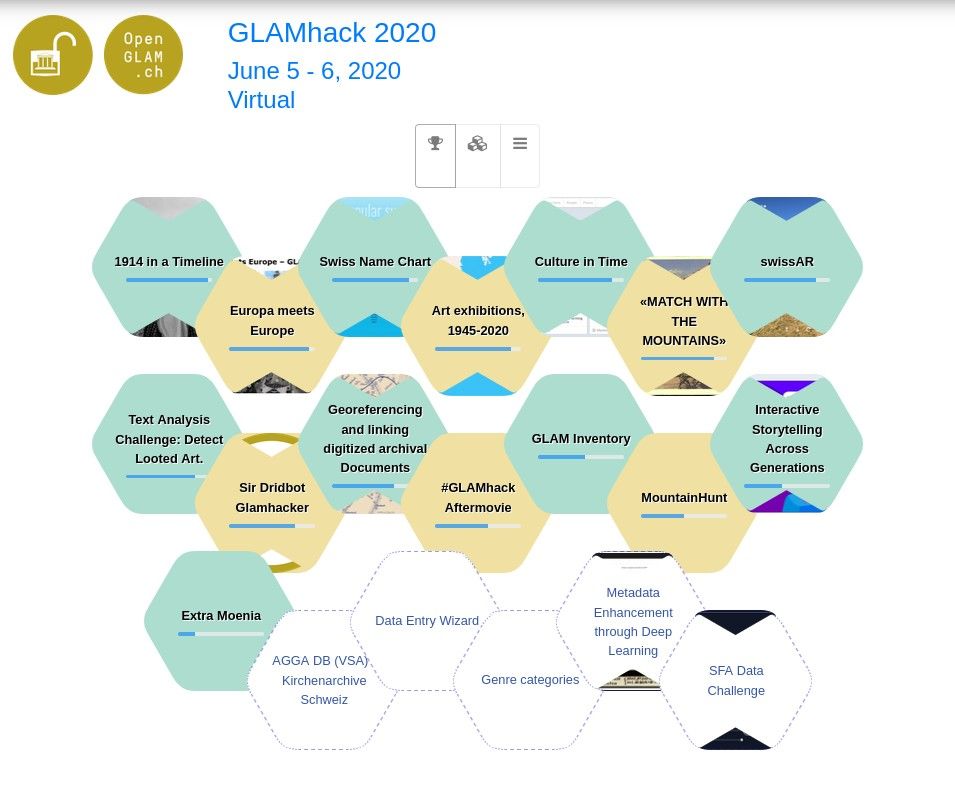
The July EvalHack, dedicated to international development evaluation, and October DayOne Health Hack had hundreds of users posting simultaneously to dribdat, raising the bar for scalability in a manageable way. My thanks to IPDET and the organizing team led by Jeremias Wyss for your contribution and engagement.
At this time I created a new home for the dribdat project: you can find a number of more detailed posts and announcements on the OpenCollective site, such as of the much sought-after user profile feature created in consultation with the MakeZurich community, who gave lots of feedback and design refinements during this remarkable and extremely inspiring virtual open hardware event bridging so many wonderful geek cultures - from telecom to demoscene.
The night shift goes full on #demoscene mode with pan+soda+unlock on stage at #makezurich pic.twitter.com/4UoQ59E6wi
— makezurich (@makezurich) October 30, 2020
Pulling off a fun and inspiring hardware hackathon. Online. Across country. In a pandemic. Wowza!
The fall of 2020 beyond that was packed, with the re-run of the Open Energy hackdays, the Open Farming hackdays, the refreshing of the statutes and commitments of Opendata.ch - Swiss chapter of Open Knowledge, along with a refresh of our support for Opendata.swiss.
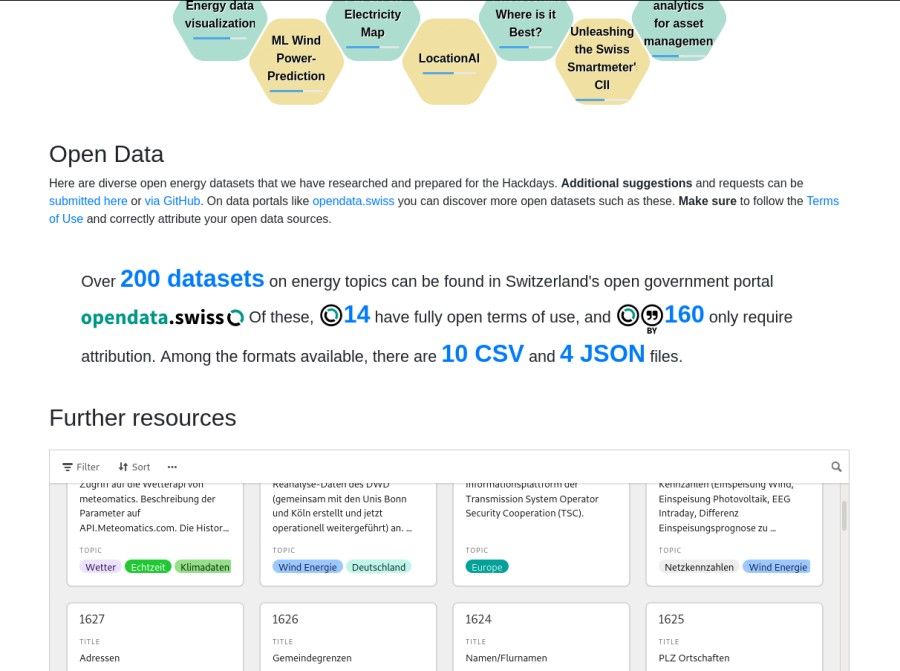
In October we had a super interesting, even if rather muted compared to previous years, DINAcon 2020 online conference for Digital Sustainability - sparking much needed connections and discussions.

In November, we had urban-data-themed events including Shape my City and Smart City Lab which brought (among others) team Cividi into the spotlight. This hackathon scene is rocking.
Fresh from the #SmartCity Lab in #Lenzburg - an event where participants challenged and co-created solutions for #future cities. As a basis for the discussions we provided a selection of relevant analyses to #structure, #use and #mobility topics in a #Gemeindescan.#civicurbanism pic.twitter.com/ypnX7ViaNu
— cividi (@cividitech) November 24, 2020
The future is now
Towards the end of 2020, with support from Innosuisse the Hackathons-as-method research team at BFH laid foundations for even more purpose- and- data-driven hackathons in years to come. "Crowdsourced progress-linked resources" is a feature that was rapidly designed and put to use at Hack4SocialGood in mid-December.
More pertinently, we as organizers are starting to ask tougher questions about the way hackathons are planned, announced, contextualized and managed. Questions of the kind that might help to sharpen our participant experience; some even of the kind we might be too afraid to ask ourselves. The results will hopefully lead to provocative hypotheses and more literature in this emerging field.
Wie ein #Hackathon die Sozialarbeit voranbringen kann, darüber sprechen die Initiatoren des #Hack4socialGood, @loleg und @Huembelin und Ursula Schindler, Geschäftsführerin von @prosenectute -Bern auf #Societybyte:https://t.co/s2sGeyjOtx#socialdigital
— BFH Wirtschaft (@bfh_wirtschaft) November 5, 2020
Linked to this, we had the chance to engage @Koboldgames on game concepts based on the dribdat platform and our hackathons, as well-documented on their blog. It was my pleasure to talk about this with the community at the last remotely-organized social events of the year:


We wrote a new interactive handbook for hackathon-goers, improved tools for distributing digital participation certificates, started an awesome-hackathons repository, and more... Here at the fringes of IT, at hackathons 'crowded, damp and cacaphonous' (to borrow a phrase from Monica L. Smith) is where we might in the turmoil see glimpses of a more tolerable technological society. Let's just not lose that URL.

Where is the data?
One thing that we've been quietly but still rather slowly improving, is access to all the data of these hackathons. Some refactoring was done to dribdat's API, along with fresh samples. The CC-licensed contents are now solidly web-accessible and schema-enforced on the linked Web of Data. We can still do much to ensure better archival and discoverability of projects, like this work I started on making all the legacy wiki projects available in the form of Frictionless Data:
While my friend Nicolas Zanotti and team have endeavoured to migrate and aggregate all those VersusVirus submissions:
The wider discussion on making the distributed and federated "Web of Hackathons" a reality continues slowly but surely. Ensuring that hackathon participation is adequately monitored and fairly championed is where progress will stall without more support.
Looking back again
It was a huge hacky year, but an exhausting and extremely stressful one. Some people are falling out, both on the organizer and community side. I acknowledge the criticism, while recognizing that hackathons almost always provide a different experience for different people. We are on a valuable path of putting the Hacker Ethic to use as an instrument of civic and responsible technology.
Just how much value? If you look at the table I shared at the top of this post, multiply those 47 days (and of those, 26 weekdays!) of hackathons by 8 hours, and that by the number of users - the sum is a very roughly estimated 40'000 hours invested by people just in this corner of the web. Run that by a conservative hourly wage for skilled knowledge work of 80 CHF to get 3 million Swiss Francs of "time capital" invested. You start to imagine follow up questions, like who were the recipients of the investment, or what kind of returns may be expected. See here for earlier pondering of this kind.
Of course, this is a gross approximation, but supports the impression that we have entered new territory in terms of hackathon audience in 2020. Regardless of how you look at such stats, the road to fair, impactful, truly diverse and meritocratic events climbs steeply and invitingly ahead on the horizon. And our mission may be more meaningful today than we currently realise. Let's put more eyes on the data.
It’s much harder to correct for brilliance bias once it’s already been learnt ... once children who’ve been taught it grow up and enter the world of work, they often start perpetuating it themselves. This is bad enough when it comes to human-on-human recruitment, but with the rise of algorithm-driven recruiting the problem is set to get worse, because there is every reason to suspect that this bias is being unwittingly hardwired into the very code to which we’re outsourcing our decision-making.
-- Caroline Criado Perez, Invisible Women
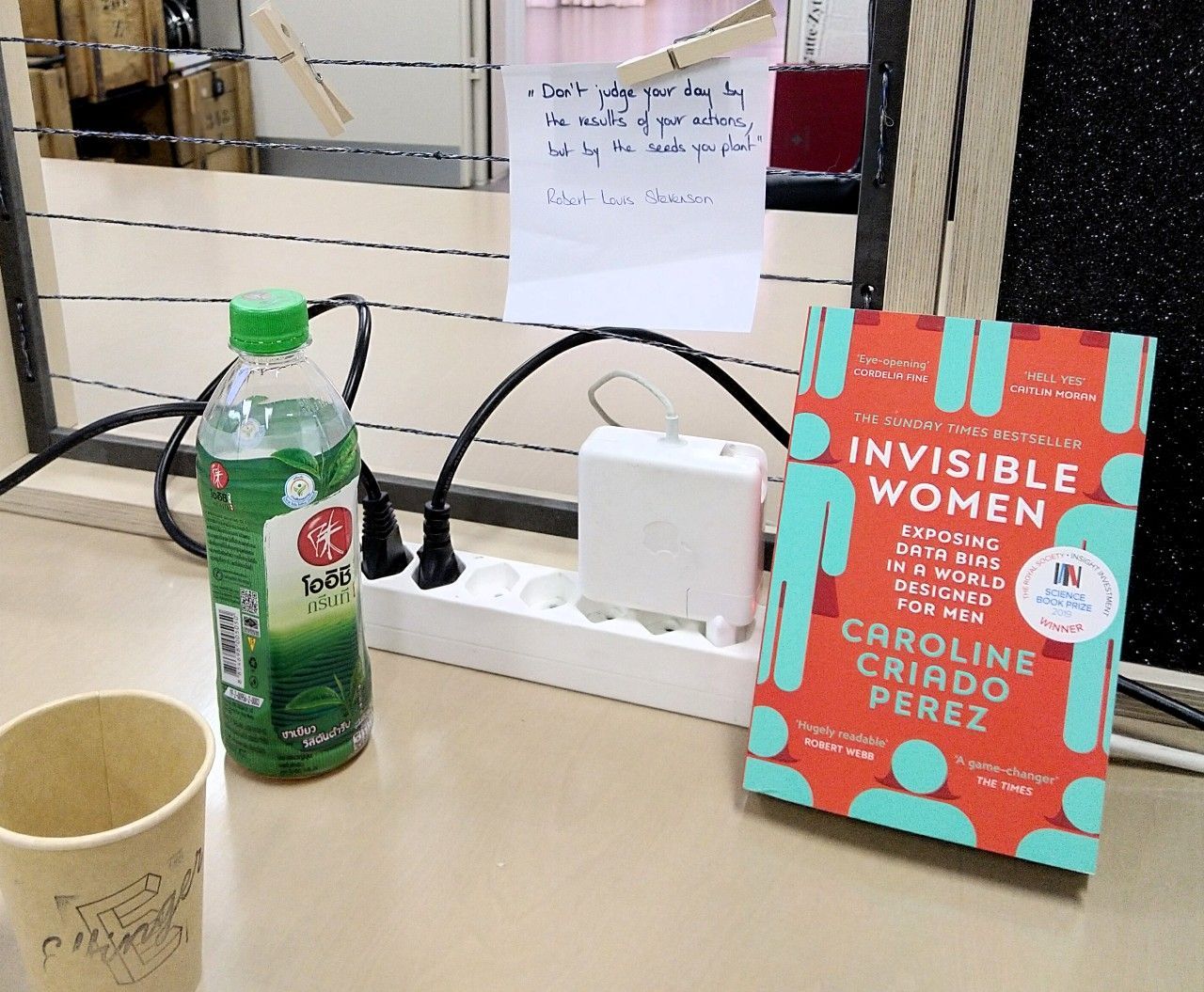
Parting links
If you would like to use an open source hackathon platform which lets you and your participants own all the data and tweak it to your needs, grab the source and get started. Let me know if you have suggestions on making hackathons and the data about them more meaningful. If you want to hack on it yourself, please take a look at the open issues, follow @dribdat for updates, join and contribute to our OpenCollective. There are design discussions where you can drop in and share your opinion.
You can of course contact me for connections to help set up your event, or just come to an upcoming hackathon. Being an enabler for others and making this process more frictionless for our community is always a priority.
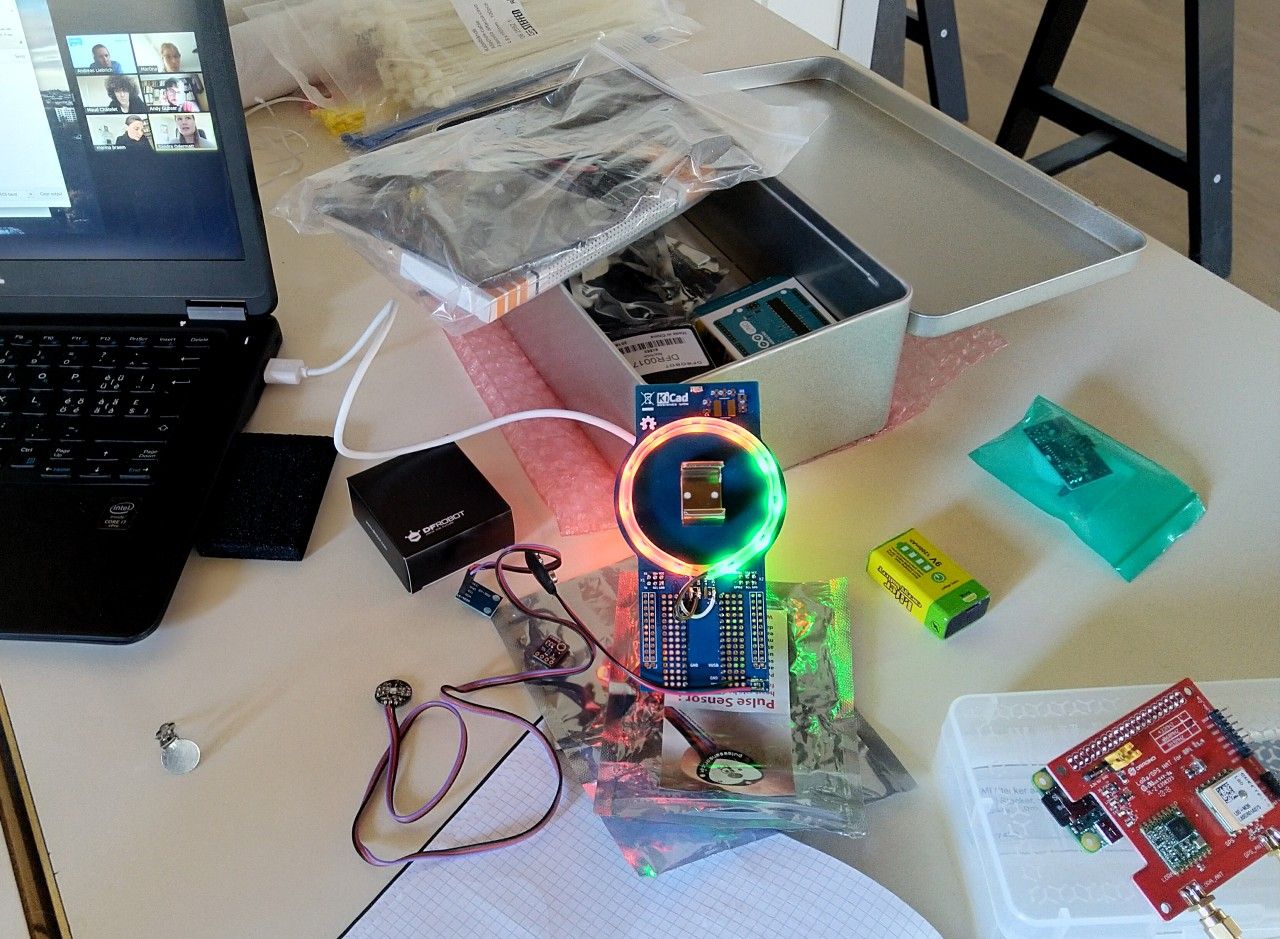
My gratitude goes out to everyone at OKFN in the Opendata.ch, ONIA, ParlDigi and connected associations, to our supporters in government, academia and industry for all this uptime. To my fellow participants, for your vision and unabated energy. To all our critics out there - helping to Keep it Real !
There's even more cooking in this kitchen. A year of continued research, rebuilding and revitalising lies ahead. Be healthy. Be resilient. Be excellent to each other!
I recommend you to next read Mae Baud's compelling thoughts about hackathon diversity, and think about what kind of events you want to support and encourage:
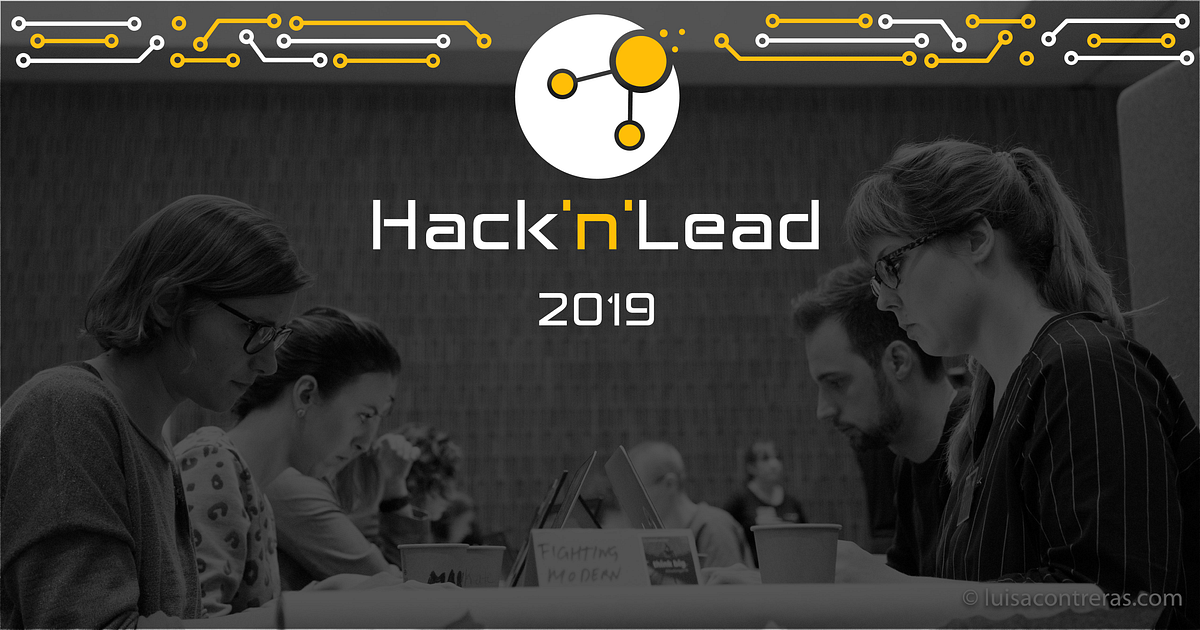





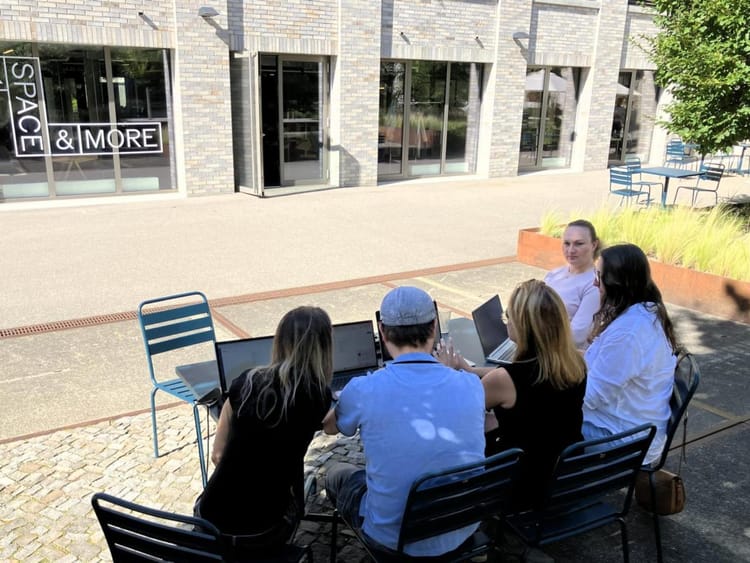
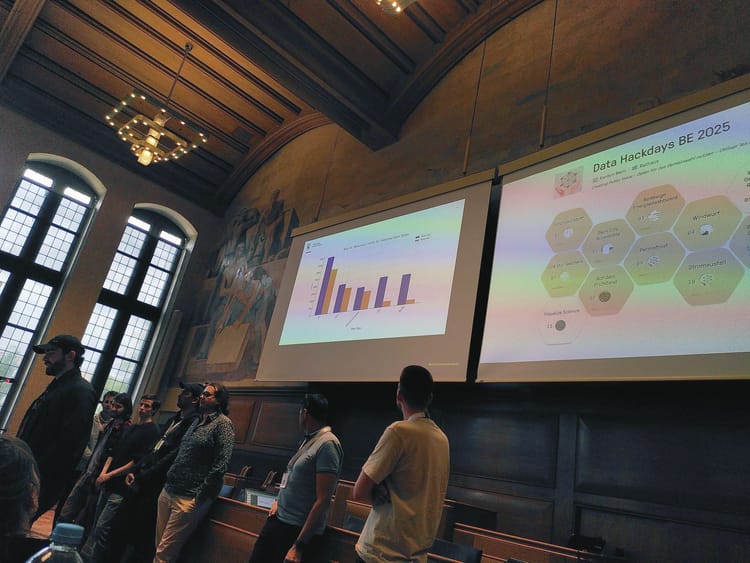
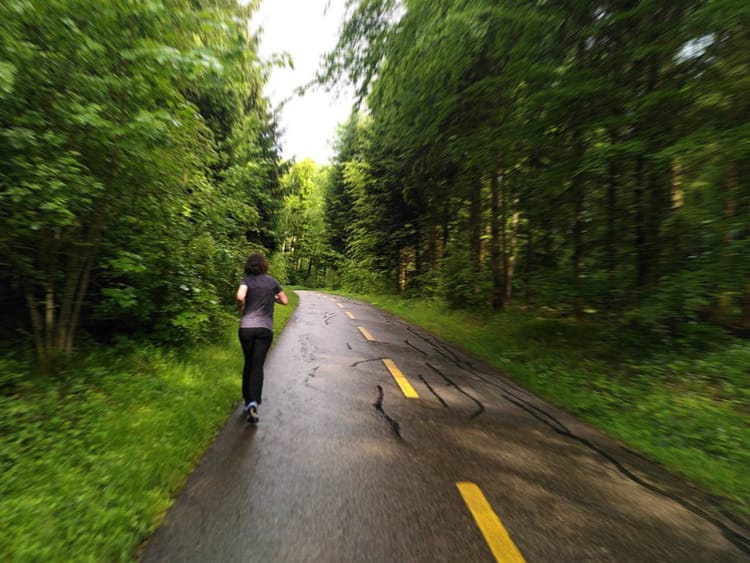
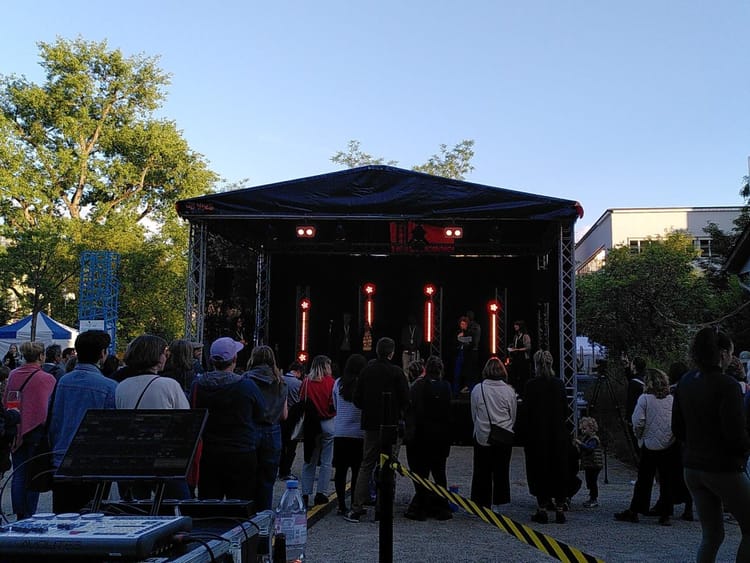
 The works on this blog are licensed under a Creative Commons Attribution 4.0 International License
The works on this blog are licensed under a Creative Commons Attribution 4.0 International License